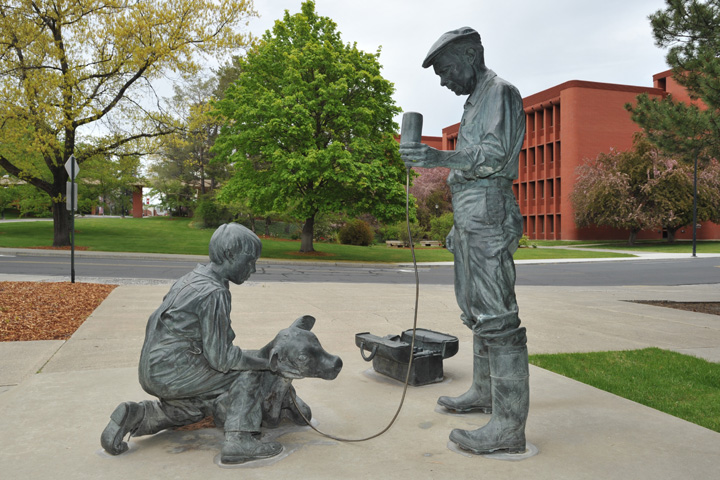One of this college’s most esteemed alumni, Dr. Bernard Pinckney (’44), died July 25, 2005, at the age of 84. Far from forgotten, Dr. Pinckney left the bulk of his estate to WSU’s College of Veterinary Medicine for the purpose of supporting teaching and related activities.
“Nearly everything I am today, I am because of WSU,” Dr. Pinckney once told us. Currently, the estate’s market value is about $2.3 million, but that figure could rise based on the sale of several properties in the Puget Sound region.
“One of Dr. Pinckney’s visions was to establish a satellite veterinary unit for this college,” said Dr. Warwick Bayly, dean of the College of Veterinary Medicine. “We are now working to make his dream a reality.”
For more than 40 years, Dr. Pinckney worked at his Central Valley Veterinary Clinic in Tacoma and was active in both the Washington State Veterinary Medical Association and the AVMA. Earlier in his career, he was the attending veterinarian for the San Diego Zoo, a regional humane society veterinary consultant, a U.S. Army veterinarian, and even taught briefly at WSU.
Dr. Pinckney is credited with using art as a way to enhance the cultural face of veterinary medicine. When asked about his greatest achievement, he once said “hands down, the Caring Call statue in front of the college. I knew I could get enough people to buy a smaller version to help pay for the permanent one.” Dr. Pinckney commissioned his friend, artist Larry Anderson, to create the statue that depicts a 1940s-era veterinarian helping care for a boy’s young calf.

The effort was so popular that in 2002 Dr. Pinckney enlisted Anderson again to create Team Effort, a life-size bronze statue embodying the handson approach to veterinary preventive medicine. He donated the statue to the American Veterinary Medical Foundation, of which he was a member of the board of directors. Dr. Pinckney was hailed for promoting the global use of microchip identification in companion animals, and was given the AVMA’s Animal Welfare Award.
“Dr. Pinckney knew the value of veterinary medicine, and the value of a veterinary education. His legacy will be in support of both of these values for all time to come,” said Dr. Bayly.